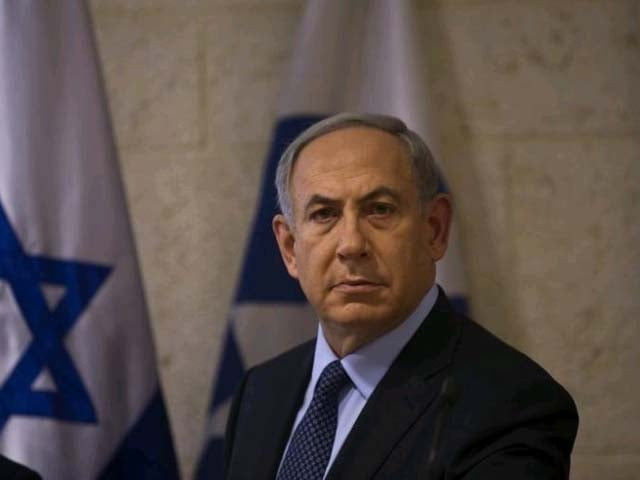On November 13, The Times of Israel quoted Prime Minister Netanyahu:
“…excessive noise …from prayer house announcement…in many European cities… (and consequently) in the Muslim world… they limit(ed) the volume of the calls out of consideration for the general public.”
The following day, The Independent reported that citing:
“noise pollution, representatives of Israel’s Knesset have given their approval to what is known as the ‘muezzin bill’ banning religious leaders from using loudspeakers or public address systems to summon worshippers for prayers.”
A disappointing measure from the weathered Israeli government just when the ThyssenKrupp affair is maturing. The Times of Israel reports that Mr Netanyahu’s “personal lawyer” is now under investigation by Israeli police under the orders of Attorney General Avichai Mandelblit for corruption and lobbying to favour the German shipbuilder. An early election may be expected if the investigation succeeds in connecting the dots.
In reaction to the injunction, Christian Palestinians gave Muslim prayer calls from their rooftops and churches. This response also draws attention to the Israeli government lumping all Palestinians under the Islamic faith. The message from the Christians is that they are Palestinians before being Muslim or Christian, a stellar example to all nations blessed or cursed with religious minorities.
The Masihi/Nasrani Christians are a permanent, pre-Islamic fixture of the Middle East that Mr Netanyahu’s government had discounted.
The solidarity expressed by the Christians of Palestine for their kin whose ancestors converted to Islam is also a stark reminder that Christians in Palestine are invisible, because they are shoved under the political carpet. And that they disapprove of the Knesset’s findings. The Palestinian plight has been subsumed into a Muslim issue by the joint energy of global Muslims and non-Muslim liberals. They view it as a uniquely Muslim symptom of contesting the sovereignty of the Holy Land and/or a means of opposing American hegemony in the Middle East.
The voice of the silent toilers is stuck between the pincers of wrath.
If the decision to reduce the 1400-year old traditional prayer call to an environmental problem seeks to deflect attention from the ThyssenKrupp affair, it is unstatesmanlike and an insult to the considerable intelligence of the Israeli electorate.
At heart lies the tragedy of a real estate dispute degenerated into a religious issue, creating a space of mutual and overlapping hostility, dominated by the pulpit pounders of righteousness who refuse to believe that the truth is usually a joint stock company.
And it is this orthodoxy that has been challenged by the Christians of Palestine. Just as Brexit and the US Presidential election have left pundits and spin doctors scratching their behinds in bewilderment.
The Palestinian Christians’ act is not without precedent. For the past eight years, Muslims have been offering their Friday prayers at the Church of the Epiphany in Washington DC. On November 21, the same gesture was made in Australia.
It is pertinent to wonder whether such deeds have been reciprocated. This scribe was able to find only a scratchy video clip of a Christian worship service in a Pakistani mosque but it does not specify when, where and who.
Yet, there is a well-cited precedent of the Prophet of Islam (pbuh) inviting the Christians of Najran (Yemen) to pray in his mosque, although not much information is available of its application since then. Perhaps because some metaphorical contents of the Christian doctrine are misunderstood as a mathematical construct and there are fears of blasphemous shirk being preached in a mosque.
In perverted contrast to the gesture of Christians in Palestine, The Pakistan Christian Post report of November 18th reveals that,
“Pakistan’s television regulatory body has banned all 11 Christian TV channels airing in the country and arrested at least six cable operators for defying the order… Father Morris Jalal, founder and executive director of Catholic TV, spoke to the UK’s Daily Express, saying, ‘As citizens, Christians have the right to practice their religion, but if they block you, it means not all citizens are equal. When someone bans the expression of faith, which is a fundamental right, there is persecution.”
To say more on the subject would be superfluous, but the timing of the ban suspiciously coincides with Israel’s interdiction on the Muslim call to prayer. If the Christians of Pakistan are being made to pay for Israel’s policies within four days of the Knesset’s decision, it reveals an expensively mis-educated perception of Pakistani Christians. They are not part of a non-existent, phantom Christian Ummah, hatching plots with the Jewish state.
Christian prayers in mosques aside, there have been enough reciprocal gestures by Muslims and Christians to justify optimism in inter-communal relations. In 2011, after lethal attacks on churches in Egypt, Muslims formed human cordons around their Christian friends, escorted them to Church and accompanied them back to their homes.
After the 9/11 Twin Tower attacks, Muslim mothers were cowering in their homes in Bedford, UK, not daring to let their children go to school for fear of reprisals. Church groups escorted the children to school and stood guard outside.
Muslims have contributed to and rebuilt a church in Khaksabad village in Pakistan and the number of Pakistani Muslims who have stood up for Christians at the risk of their lives is a long roll of honour.
So bridling ambitious religious professionals and unscrupulous politicians gives people-to-people a chance to work.
In their heyday, many Muslim countries patronised science without compromising their faith. Today, this tradition of incorporating scientific development admits loudspeakers and taped prayer calls. If the azaan is a reminder and not a public profession of faith, then the next logical step would be an app that vibrates mobile phones.
Actually, the Israeli government lost the opportunity of showing a soft hand, gifting an app to the Imams and perhaps getting them on board. Instead, they chose a show of force which has brought the Christians out of the woodwork in additional defiance and probably put their security think tanks into overdrive.



COMMENTS
Comments are moderated and generally will be posted if they are on-topic and not abusive.
For more information, please see our Comments FAQ